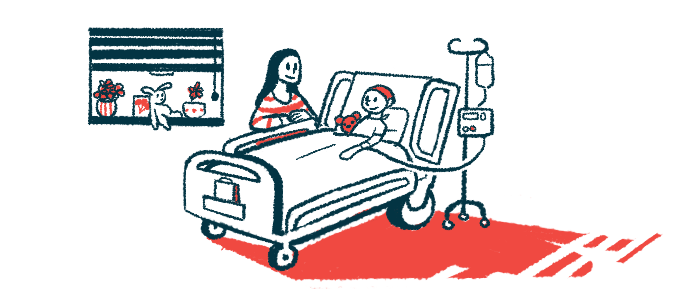Childhood Medical Trauma Reported by Most Adults With CF in UK Study
Written by |

Most adults with cystic fibrosis (CF) report experiences with painful or frightening medical procedures in childhood after their diagnosis, according to a U.K. study.
These patients may benefit from psychosocial support from CF teams, who can ask about trauma in childhood in a safe and sensitive manner, researchers say.
The study, “Adverse Childhood Experiences (ACEs) in Adults with Cystic Fibrosis,” was published in the journal Psychology Research and Behavior Management.
Receiving a CF diagnosis in childhood increases the risk of trauma due to the need to undergo distressing medical procedures, and exposure to adverse experiences has been found to increase the risk of physical and mental problems later in life.
“Children with CF may be protected against early adversity since they are likely to have increased involvement with healthcare agencies throughout childhood,” the researchers wrote. “However, evidence suggests that disabled children are more likely to be maltreated and neglected than others.”
To better understand the long-term effects of early life trauma in adults with CF, a team led by researchers at the Cardiff and Vale University Health Board, in the U.K., assessed the prevalence of adverse childhood experiences (ACEs) among 80 adults with CF (29 women and 51 men; mean age 32 years) attending the All Wales Adult CF Service.
The patients completed an adapted version of a short-form ACE questionnaire developed by the Centers for Disease Control and Prevention that was designed to evaluate 11 ACEs in children and adolescents (up to 18 years of age), including verbal, physical, sexual, alcohol and drug abuse; emotional or physical neglect; parental separation; incarceration; domestic violence; and mental illness.
The questionnaire included five more questions to capture the experiences of growing up and living with CF, including undergoing a medical procedure, being frightened by a hospital admission, being forced to undergo treatment, and being bullied by peers. Each ACE parameter was scored as 0 (no exposure) or 1 (exposure).
Additional parameters analyzed included depression (assessed by the Patient Health Questionnaire-9) and anxiety, evaluated by the General Anxiety Disorder-7. A psychosocial interview was also conducted.
Among the 11 ACE types in the short-form questionnaire, results revealed that most participants (65 patients, 78%) experienced at least one type of adversity during their childhood. Eleven patients (14%) experienced four or more ACEs.
Divorce or separation of parents and verbal abuse were the most frequently reported ACEs, both showing a higher prevalence when compared to data from the general population in Wales — divorce/separation reported by 32.5% vs. 27.8%, and verbal abuse by 31.3% vs. 22.1%.
Also, 52 patients (64%) reported having experienced a painful or frightening medical procedure, while 23 (28%) felt forced to undergo a treatment or a procedure.
Results also showed that a higher number of ACEs correlated with higher (worse) scores in the depression and anxiety measures.
Overall, adults with CF “reported a number of childhood traumas including trauma relating to medical procedures,” the researchers wrote.
“Those with a history of ACEs may have increased risks of emotional and physical difficulties and may benefit from additional support from the CF psychosocial team,” they concluded.






